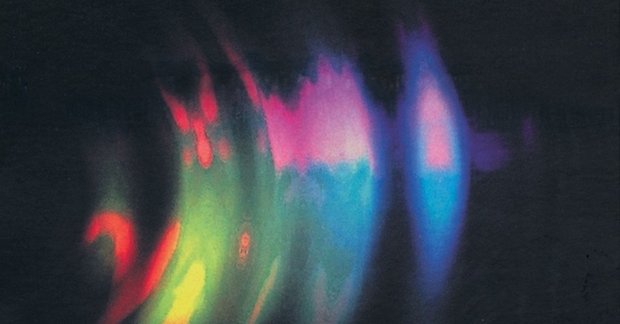After completing his A-levels and graduating from primary school at 17, Jon Hopkins joined Imogen Heap’s band as a keyboard player. He played with them for about a year and was on his way to becoming a bit of a nomad, moving from project to project, slowly developing his voice. He garnered pockets of attention in the latter half of the ’00s for his work in film, particularly with Brian Eno on Peter Jackson’s The Lovely Bones, but his solo work was second to that of his film scores. It took him four albums before he hit the mark with Immunity, a relentlessly brooding and stark collection of songs. Immunity invented a visceral electronic world, decidedly claustrophobic and blindingly loud. His music took years to find this sensibility, and in his debut Opalescent, he was prone to mistakes that seem rather curious in the light of his recent work. He released Opalescent in 2001 when he was barely 22 years old, and it remains a strange record of Hopkins’ own youthful dalliances. To commemorate the long, circuitous journey Hopkins took to prominence, Just Music has reissued the album to celebrate its 15th anniversary.
Opalescent was generally well-received at the time of its release. User reviews from Amazon dating back to 2001 tell a small story of ecstatic reception. One reviewer said they became obsessed with one of the tracks after hearing it on a new age sampler, which should give you a sense of where the album could be categorized. It’s classic chill-out music, the kind of stuff that came free with Windows XP, perfectly wrought for early visualizer technology. Opalescent is quite forcefully an extremely milquetoast album of vibes, filled with cheesy guitars and saccharine synthesizer flourishes. Other than the amount of time since its initial release, it is a bizarre choice for a deluxe reissue that hardly speaks to Hopkin’s current aesthetic sensibility. Why reissue this album in the first place?
Standing at almost an hour, Opalescent is a bit of a slog. It starts inauspiciously with “Elegiac,” a mishmash of acoustic guitar plucks and computer start-up chimes. It sets the tone for the album—a tone similar to that heard in American malls circa 2001 during the heyday of Sharper Image. Hopkins’ songs are sleek, smooth, but lifeless—essentially simulations of emotional and meditative experience as opposed to something actually trance-inducing. “Halcyon” is shudderingly cheesy, a mess of mellow electric guitar and synth that brings up all the polite snark of a Dyson vacuum cleaner commercial. “Apparition” contains looped piano chords and ambient sputter that are so bland as to be anonymous. “Cold Out There,” one of the album’s highlights, is at least hesitant, impressionistic, and works on some fundamental level. Yet it’s not like you forget that you’re listening to music, it’s that it feels like that you've been on hold with a customer service representative for an entire hour. The album, while well-produced, becomes akin to muzak.
Songs from Opalescent were also featured heavily in the last season of “Sex and the City.” Incidentally, the final season of the show is also the one that has aged the most poorly. Is it any surprise that prominence of Opalescent in late “Sex and the City” soundtracks coincided with the emergence of one of the shows more maligned and ridiculous characters: the cheesy artist, Aleksandr Petrovsky? Hopkins’ music was used during several key dramatic sequences during the last season: “Halcyon” appeared in “Let There Be Light” to introduce Carrie and Aleksander’s blooming relationship, “Cold Out There” soundtracked their breakup in the series finale. The early-career “Sex and the City” bump helped fund his later and better work, and it is a strangely appropriate footnote for the album. It became a means to an end, more than an actual piece of art Hopkins might think fondly of now.
In an interview with Red Bull a few years ago, Hopkins said of the album, “I like about half of it now … I wish I could remove them from history. I was young and the best thing that came from it was that it managed to set me up to write the second one, because I earned a bit of money.” And that would seem to be that. A decade later, he would become a permanent fixture in electronic music. But in Opalescent we can see that rough drafts, even the one’s we let the world see, are blind to the future. Why Opalescent is getting a reissue if Hopkins himself said he would literally like to remove it from history is a confounding question. If anything, it offers a more coherent and detailed portrait of Hopkins’ progression. It is a moment of youthful fallibility, but one of the most extreme proofs of artistic growth.








